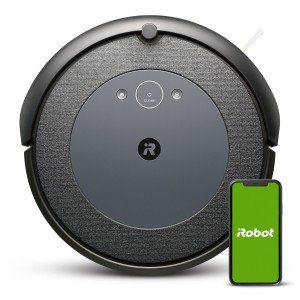Robotic Vacuum Cleaner Comparison: The Future of Home Cleaning
Over the last few years, robotic floor vacuums vacuum have actually transformed the way we keep cleanliness in our homes. With improvements in technology and the incorporation of expert system, these gadgets have actually developed from simple novelty items to important household home appliances. This post provides a comprehensive comparison of a few of the leading robotic vacuum cleaners on the marketplace, helping customers make informed choices when picking a design that suits their needs.
Understanding Robotic Vacuum Cleaners
Robotic vacuum cleaners are self-governing devices developed to clean floors immediately. Equipped with sensors, they browse around barriers and adjust their cleaning paths for optimal performance. The essential functions that differentiate various designs include suction power, battery life, app connection, navigation innovation, and price.
Key Features to Consider
When comparing robotic vacuum, potential purchasers should take into consideration the following aspects:
- Suction Power: Measured in Pascals (Pa), suction power figures out the effectiveness of getting dirt and particles.
- Battery Life: The length of time a vacuum can operate before requiring a recharge significantly impacts its cleaning efficiency.
- Navigation Technology: Models may use simple random navigation or advanced mapping innovations (like LIDAR) that allow them to create a map of the home.
- Smart Features: Connectivity to smart device apps or smart home systems can boost functionality and control.
- Filter Type: HEPA filters are advised for allergic reaction sufferers, as they trap irritants and enhance air quality.
Comparison of Top Robotic Vacuum Cleaners
Below is a comparison table of some of the very best robot floor cleaner robotic vacuum cleaners available in 2023:
| Model | Suction Power (Pa) | Battery Life (min) | Navigation Technology | Smart Features | Price (GBP) |
|---|---|---|---|---|---|
| iRobot Roomba i7+ | 1700 | 75 | Smart mapping | App control, voice command | ₤ 949 |
| Roborock S7 | 2500 | 180 | LIDAR | App control, multi-floor | ₤ 649 |
| Neato D7 | 2000 | 120 | LIDAR | App control, zone cleaning | ₤ 599 |
| Ecovacs Deebot T10 | 3000 | 150 | Smart mapping | App control, room detection | ₤ 799 |
| Shark IQ robot vacuum cleaner industrial | 1200 | 90 | Random | App control, self-emptying | ₤ 399 |
Description of the Table
iRobot Roomba i7+: Known for its robust cleaning capability, it features smart mapping technology that enables it to designate specific locations for cleaning. Its self-emptying function is a plus for benefit.
Roborock S7: This design stands out in suction power and battery life, making it ideal for larger homes. Its LIDAR technology assists produce an efficient cleaning path, and it can vacuum and mop all at once.

Neato D7: The D-shape style enables better corner cleaning, and it includes strong suction power. Its LIDAR navigation allows it to map out cleaning locations accurately.
Ecovacs Deebot T10: Boasting the highest suction power and advanced navigation, this design can handle numerous floorings successfully. It's a flexible option for families with differing floor types.
Shark IQ cheap robot vacuum cleaner: A budget-friendly choice that still offers smart features. Its self-emptying ability and app integration make it a practical option for those trying to find a strong cleaning companion without breaking the bank.
Advantages of Robotic Vacuum Cleaners
Robotic vacuum use many advantages that contribute to their increasing popularity amongst customers:
- Time-Saving: Automated cleaning allows users to release up important time that can be spent on other activities.
- Convenience: Many models can be set up through apps to clean up at specific times, decreasing manual effort.
- Ease of access: They can reach under furnishings and in tight spaces where standard vacuums might have a hard time.
- Daily Maintenance: Regular usage of robotic vacuums can help keep a consistently clean environment, promoting better overall home health.
Frequently Asked Questions About Robotic Vacuum Cleaners
1. How frequently should I run my robotic vacuum?
It is suggested to run the robotic vacuum a minimum of 2-3 times a week to keep cleanliness, though daily use can be helpful, specifically in homes with animals or high foot traffic.
2. Do robotic vacuums work on carpets?
Yes, numerous robotic Vacuum Cleaner comparison; tipslove.org, vacuums are designed to work on carpets, however effectiveness might vary based on the design's suction power and brush type. Try to find models particularly pointed out as effective for carpets.
3. Can robotic vacuums tidy animal hair?
The majority of robotic vacuums can efficiently pick up pet hair, however those with strong suction and tangle-free brush styles are particularly appropriate for this task.
4. How do I preserve my robotic vacuum?
Regular maintenance includes cleaning the brushes and sensing units, clearing the dustbin, and occasionally replacing filters to guarantee optimal efficiency.
5. Are robotic vacuums worth the investment?
While they tend to be more pricey than standard vacuums, the convenience, efficiency, and time-saving aspects make them a worthy financial investment for lots of households.
The marketplace for robotic vacuum cleaners continues to expand as innovation evolves, using consumers a range of choices to match various cleaning needs and budgets. By carefully thinking about features such as suction power, battery life, and smart capabilities, users can choose a model that lines up with their lifestyle. Whether for benefit, ease of use, or remarkable cleaning efficiency, robotic vacuums are certainly reshaping the future of home cleaning.








